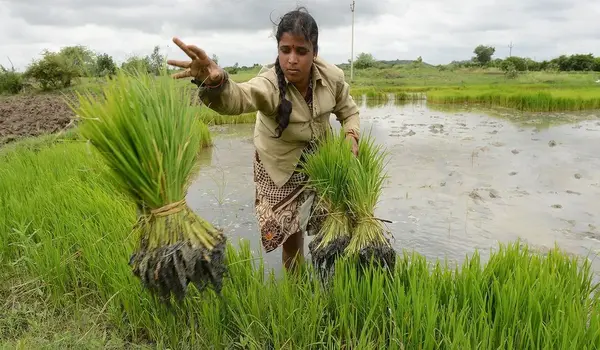Introduction Bulkagrochem is a leading force in transforming agriculture through innovative solutions that prioritize sustainability and productivity. Our dedication goes beyond offering high-quality agricultural products; we are committed to empowering farmers with the knowledge and tools to optimize their farming practices. One of the key strategies we advocate is planting a variety of crops. This approach not only enhances the health and productivity of farms but also contributes significantly to environmental sustainability. By promoting crop diversity, Bulkagrochem helps farmers navigate the complexities of modern agriculture, ensuring their operations are resilient, efficient, and sustainable. Benefits of Planting a Variety of Crops Enhanced Soil Health: Diverse crops contribute to better soil structure and fertility. Different plant roots interact with the soil in varied ways, helping to prevent erosion and improve nutrient cycling. Reduced Pest and Disease Risks: Crop diversity can disrupt pest and disease cycles. By planting a range of crops, farmers reduce the likelihood of widespread infestations or infections that can devastate a monoculture. Improved Pollination: Varied crops attract different pollinators, which can increase pollination efficiency and enhance the productivity of all plants on the farm. Increased Resilience to Weather Variability: Different crops have varying tolerances to weather conditions. A diverse planting strategy can help mitigate the risk of total crop loss due to adverse weather events. Enhanced Biodiversity: Planting a variety of crops supports a more diverse ecosystem on the farm, which can improve ecological balance and support beneficial organisms. Optimized Resource Use: Different crops have unique nutrient and water requirements. Diverse planting can lead to more efficient use of resources, reducing the need for artificial inputs. Economic Stability: A diverse crop portfolio can provide farmers with multiple income streams, reducing financial risk if one crop fails or market prices fluctuate. Improved Soil Structure: Varied root systems help to improve soil aeration and reduce compaction, leading to healthier soils and better crop growth. Main Benefits of Planting a Variety of Crops Soil Health Improvement: Planting different types of crops helps maintain and enhance soil health. Each plant species contributes to the soil in different ways—some improve soil structure, while others add organic matter or fix nitrogen. This variety helps create a more balanced soil ecosystem, which supports better crop growth over time. Pest and Disease Management: Diversity in crops can act as a natural pest management strategy. Pests and diseases that thrive in monocultures are less likely to spread across diverse plantings, as different crops often require different pests and diseases to thrive. This can lead to fewer pesticide applications and lower overall pest management costs. Pollination Benefits: Different crops attract various types of pollinators, such as bees, butterflies, and birds. By planting a range of crops, farmers can support a more robust pollinator population, which in turn enhances the pollination of all crops, leading to better yields and quality. Weather Resilience: Crop diversity can provide a buffer against weather-related risks. While some crops may be more vulnerable to drought or flooding, others may be better suited to handle these conditions. By having a mix of crops, farmers can reduce the risk of complete crop failure due to unpredictable weather patterns. Biodiversity Enhancement: Diverse cropping systems support a wider range of organisms, including beneficial insects, soil microbes, and wildlife. This increased biodiversity can lead to a healthier farm ecosystem and support natural processes such as nutrient cycling and pest control. Conclusion Planting a variety of crops is a transformative strategy that can profoundly impact farm productivity and environmental health. Bulkagrochem is dedicated to helping farmers understand and implement this approach to achieve enhanced soil health, reduced pest and disease risks, and greater resilience to environmental changes. By embracing crop diversity, farmers can optimize their resource use, stabilize their income, and contribute to a more balanced and sustainable agricultural ecosystem. Our commitment extends to providing the resources and expertise necessary to support farmers in these efforts. At Bulkagrochem, we believe that fostering diverse agricultural practices is key to advancing both farm success and environmental stewardship.
Bulkagrochem
Submit your contact number & get exciting offer
Bulkagrochem.com
Bulk Purchase & Get Bulk Discount
Share your number to receive customized bulk pricing, availability updates, and exclusive offers directly via WhatsApp.

Recommended Products



